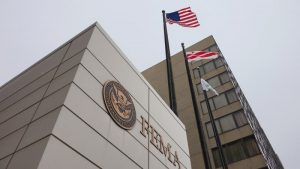Peter Romness is passionate about cybersecurity. He has been working with government customers for nearly 35 years and now, as cybersecurity principal in the CISO Advisor’s Office at Cisco, he focuses on protecting government networks from cyber threats. MeriTalk recently sat down with Romness to discuss how state and local governments and higher educational institutions are investing and gaining knowledge to guard against cyberattacks.
New Hampshire cybersecurity and education experts told Sen. Maggie Hassan, D-N.H., this week that more resources are needed in order to protect K-12 schools from cyberattacks.
With the first day of school on the horizon, broadband service provider FirstNet is now offering a new Wearable Panic Button that provides schools with a comprehensive set of tools to help prevent, prepare for, respond to, and recover from safety threats.
Federal Communications Commission (FCC) Chairwoman Jessica Rosenworcel announced that the commission intends to recharter the Precision Agriculture Connectivity Task Force for a third and final term.
Internet Safety Labs (ISL), a non-profit organization focused on independent software product safety testing, has announced the availability of App Microscope to help advance mobile app safety for K-12 students, families, and educators.
The Colorado Department of Higher Education (CDHE) has confirmed that students’ personal information may have been compromised during a ransomware attack earlier this year.
Tens of thousands of people from Massachusetts were notified that they fell victim to a MOVEit data breach, the state’s Executive Office of Health and Human Services announced in a August 15 press release.
West Virginia Gov. Jim Justice announced that the state’s Division of Motor Vehicles has launched its National Digital Titling Clearinghouse. According to the governor’s office, the clearinghouse is a central location for quick, efficient, and secure title transfers, and the first of its kind in the United States.
Following a summer of record-breaking air quality concerns nationwide, the city of Boston has launched a new air quality widget.
The Federal Emergency Management Agency (FEMA) has come long way in its efforts to creatin identity protection programs that allow it to better collaborate with local and state governments, the agency’s top network security official said this week.














